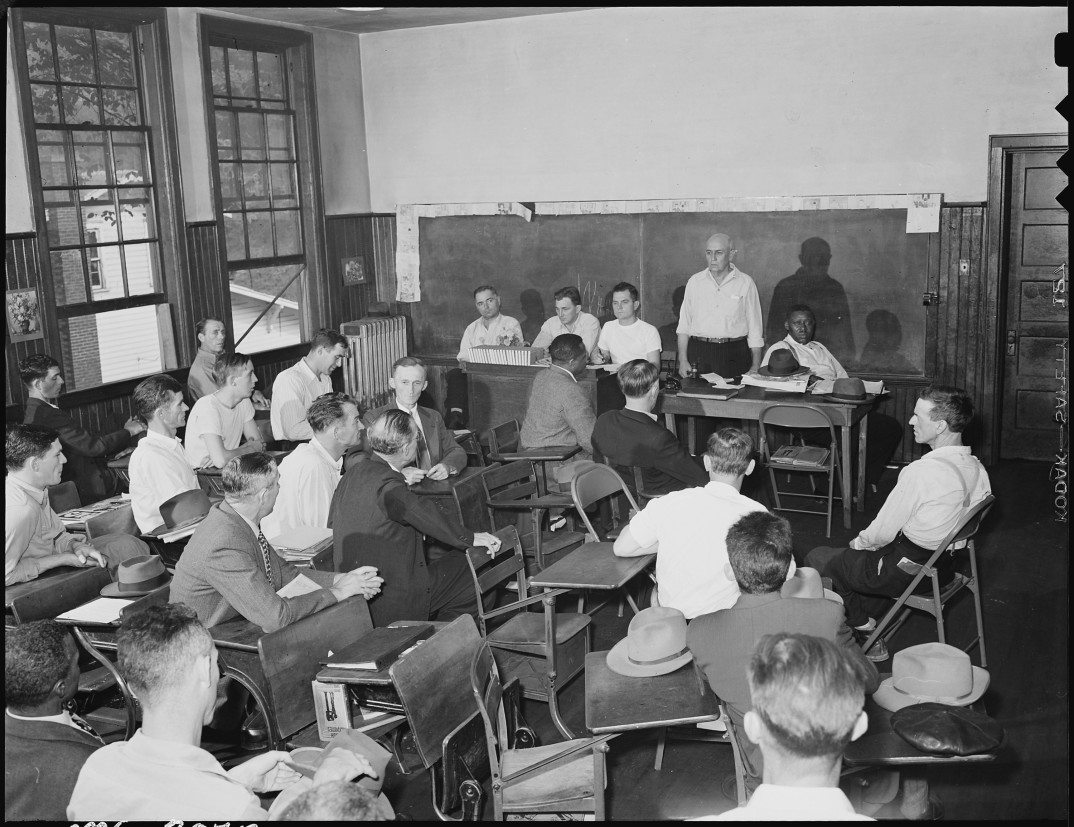Freedom of Association and Right-to-Work Laws
This post originally appeared on October 20, 2015.
In March 2015, Wisconsin became the 25th state to adopt “right-to-work” laws. Kentucky, Illinois, Missouri, New Mexico, Montana, and West Virginia are all considering such laws. Right-to-work laws do not prohibit unions. They prohibit agreements between unions and employers that require workers to be members of unions or to pay agency fees for the benefits they receive from union representation.
I shall comment on the question of whether it is morally permissible for states to impose such laws. Roughly speaking, there are two kinds of considerations that may be relevant to this question: (1) instrumental benefits (e.g., economic) of adopting such laws, and (2) principled moral limits (e.g., based on individual rights) on the proper role of states. With respect to the former, a major issue concerns the impact of the laws on wages and benefits (do they lower them?) and on the number of jobs (do they increase them?). I’m not an expert on the economic costs and benefits, but my sense is that the evidence is inconclusive. In any case, I shall set this issue aside and focus solely on the principled moral limits on state laws.
Right-to-work laws are authorized by the federal Labor Management Relations Act of 1947 (known as the Taft–Hartley Act). It prohibits closed shops, which require union membership as a condition of employment. It further authorizes states to prohibit (1) union shops, which allow short-term, non-union employees but require all employees to be members of the union after a certain period of employment, and (2) agency shops, which do not require union membership but require employees to pay an agency fee for any benefits received from services provided by the union (such as collective bargaining). Right-to-work laws prohibit both of these and allow only open shops, which do not require union membership or the payment of the equivalent of (perhaps partial) union dues. (They also typically prohibit firing an employee for joining a union.)
Right-to-work laws are often defended on the basis of the right to freedom of association, and I will focus on this issue. The argument is that workers should be free to join unions and also free not to do so. I agree that individuals have a strong right of freedom of association, but this right, I shall argue, supports the impermissibility—not the permissibility—of right-to-work laws.
To start, consider the right of freedom of association of workers. That indeed entails that workers should be legally free to join a union (if there is one) and free not to do so. It doesn’t require, however, that the law prohibit workplaces that require union membership. Consider an analogy: Workers should be free to work at places that require wearing a hat as a condition of employment and free to work at places without such requirement. That doesn’t require that the law prohibit workplaces from requiring wearing a hat. It just requires that workers have the legal right not to work at each kind of place.
So, the right of freedom of association does not require right-to-work laws. Indeed, once one considers the right of freedom of association of employers, it prohibits right-to-work laws. These laws, recall, prohibit employers from forming certain kinds of agreements with workers. They are not allowed to voluntarily agree to require union membership as a condition of employment. This is incompatible with freedom of association. If the employer and the workers voluntarily agree on a contract requiring union membership (and there are no relevant significant effects on others), it is impermissible for the state to restrict the terms of employment.
State right-to-work laws prohibit union shops and agency shops and are thus incompatible with a strong right to freedom of association. Indeed, the federal Taft-Hartley Act (1947), which authorizes these state laws, also prohibits closed shops. It is thus doubly flawed.
One possibility is that, although right-to-work laws are unjust because they infringe the right of freedom of association, they are nonetheless permissible because they make the world more just overall. Given other injustices in society, this one injustice might offset opposing injustices. If one thinks, for example, that employers are unjustly treated by their workers/unions, then one might endorse such a view for right-to-work laws. I, however, can find no plausible view according to which infringing the rights of freedom of association of workers and employers makes things more just overall.
Of course, one might defend right-to-work laws on the basis of the economic or other benefits of their consequences. I have not addressed this issue. My claim is only that, if as held by libertarians and many minimal-government theorists, rights of freedom of association are very strong, then right-to-work laws are likely impermissible.
Further reading:
- In researching for this article, I discovered that my core point has already been made by several libertarian thinkers. See, for example J.D. Tuccille’s https://reason.com/blog/2012/12/12/when-right-to-work-is-wrong-and-un-liber.
- For a summary of the possible economic benefits, see https://www.washingtonpolicy.org/publications/brief/right-work-what-it-and-how-it-works-0. For some skepticism about how strong the evidence is, see the interview with Tim Bartik at http://www.npr.org/2012/12/13/167198023/do-right-to-work-laws-help-or-hurt-the-economy.





